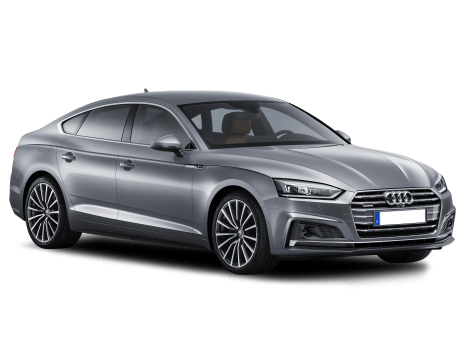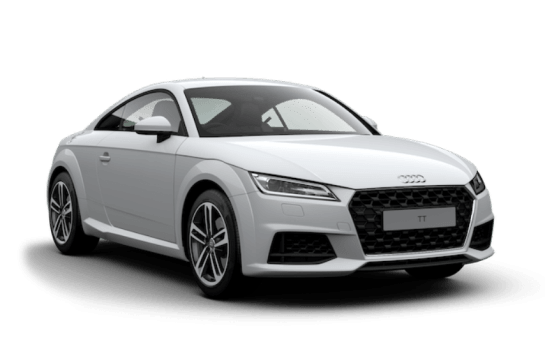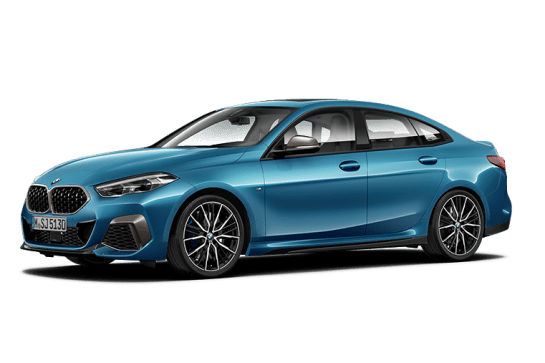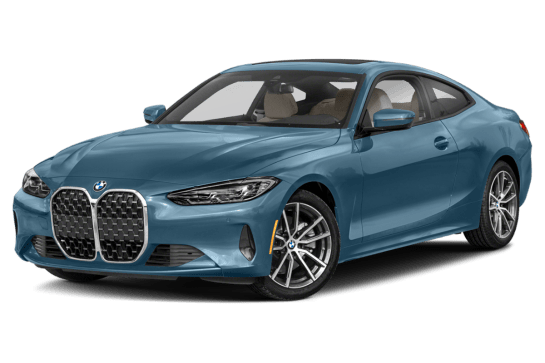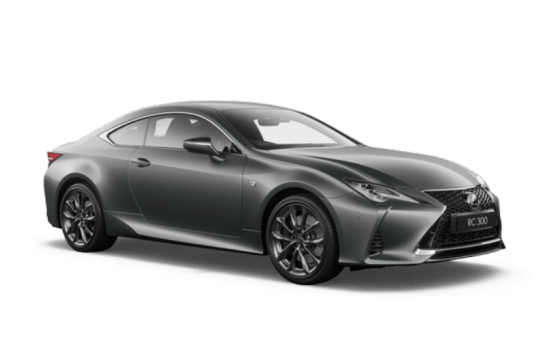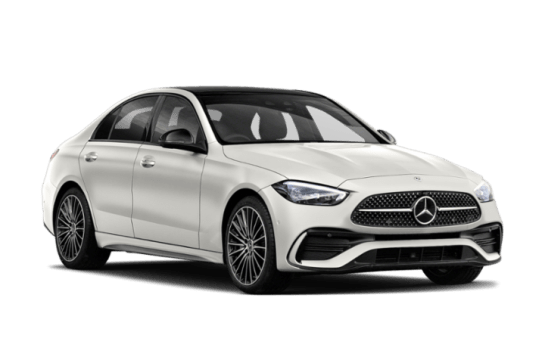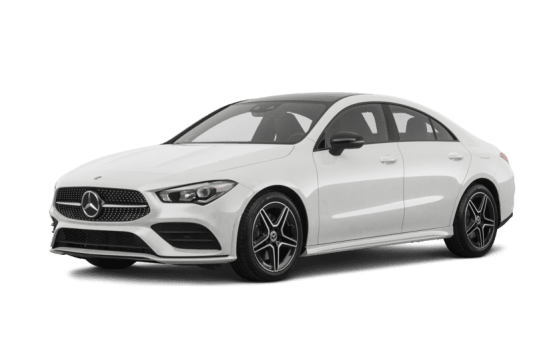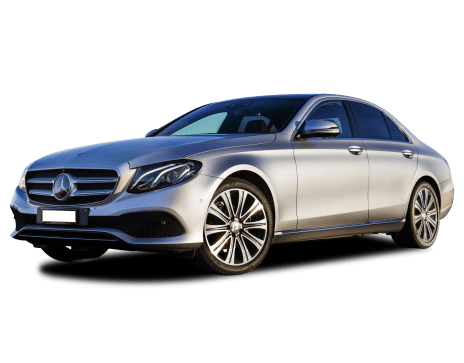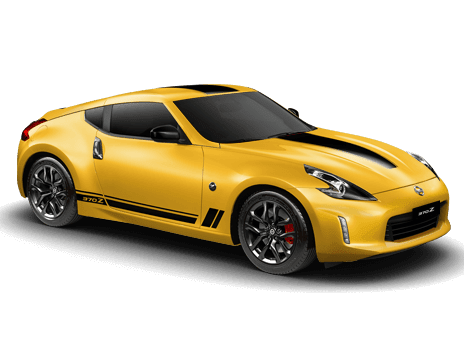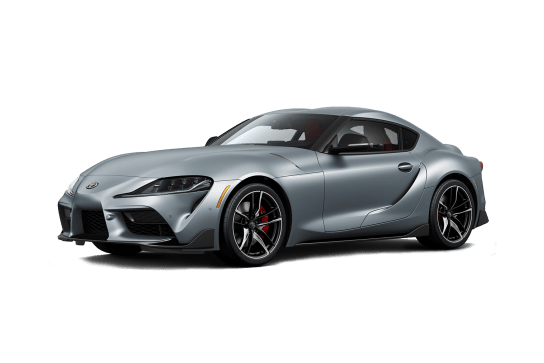
BMW M2 VS Lexus RC
BMW M2
Likes
- Blistering performance
- Dynamic prowess
- Attention-grabbing looks
Dislikes
- Spartan equipment list
- Very pricey
- Rubber pedals
Lexus RC
Likes
- Smooth, effortless V6
- Better looking than before
- Tweaked chassis feels good
Dislikes
- Thirsty
- Useless rear seats
- Heavy
Summary
BMW M2
When BMW’s M2 first landed on Australian shores in 2016, one of the biggest criticisms levelled at it was a lack of grunt, which must have hurt its feelings.
With 272kW and 465Nm from the 3.0-litre single-turbo ‘N55’ six-cylinder engine, it was hardly tame, but the question it raised was whether it was special enough to be christened a full-fat M car? And the answer from enthusiasts was "perhaps not".
Fast forward to 2018 and BMW had rectified that criticism with the M2 Competition, powered by a 3.0-litre twin-turbo ‘S55’ engine from the M3 and M4 to punch out a more exciting and appropriate 302kW/550Nm.
For anyone crazed enough to think that was still not enough, the M2 CS is now available in showrooms, and turns the wick up to 331kW and 550Nm, thanks to some tweaks to the engine. It's now available with a six-speed manual gearbox, too. That sound you hear is purists rejoicing.
So, does this now make the 2021 M2 CS the ultimate BMW for the enthusiast driver?
| Safety rating | — |
|---|---|
| Engine Type | 3.0L turbo |
| Fuel Type | Premium Unleaded Petrol |
| Fuel Efficiency | 9.9L/100km |
| Seating | 4 seats |
Lexus RC
It's 2019 and the Lexus RC has been with us for four years which means it's time for a mid(ish)-life update. A glance at the specifications and tech details for its very low-key, late 2018 arrival suggests not much has changed. And let's be fair, it hasn't.
The mild refresh has brought a few changes in spec (in the right direction), price (the wrong direction, but few things are free in this life), and styling (you be the judge).
| Safety rating | |
|---|---|
| Engine Type | 3.5L |
| Fuel Type | Premium Unleaded Petrol |
| Fuel Efficiency | 9.4L/100km |
| Seating | 4 seats |
Verdict
BMW M27.9/10
As the ultimate form of the current M2, the CS distils the best aspects of what everyone loves about BMW into one tidy little package.
The driving experience is nothing short of divine, even if the manual gearbox shifts could be better, while the firecracker engine kicks things up to a whole new level.
If only BMW offered more equipment and safety to round out the $140,000 pricetag, or maybe they should have leaned harder into the lightweight aspect and ditched the rear seats to make the M2 CS even more special.
At the end of the day though, the M2 CS is still an unbelievably appealing driver’s car, and I can’t wait to see what BMW has in store for the next one.
Lexus RC7/10
The RC's time on my drive was preceded by a cheaper, V8-powered Mustang, so it was fascinating to compare the Japanese approach to the American. They're not really competitors, obviously, but the Lexus' ability to cosset the driver while still showing a good turn of speed was an interesting counterpoint.
The 2019 RC350 isn't a step-change - if you want one of those, double your money and get the delightfully nutty RC F - but the changes inside, outside and underneath will certainly please the fans even if it doesn't bring in new ones in huge numbers.
Does anyone still even notice luxury coupes? If you do, is Lexus even on the radar?
Design
BMW M210/10
We’re already big fans of the way the M2 looks, it’s just the right size and has the perfect proportions for a sporty coupe, and the CS just takes things to another level.
From the outside, the M2 CS scores a noticeably bigger bonnet bulge, as well as a vented hood to improve airflow.
The front splitter, side mirrors, skirts, bootlid spoiler and rear diffuser are also finished in carbon, and add to the car’s aggressive demeanour.
Filling the wheelarches are 19-inch wheels finished in black, but tucked behind those are massive drilled brake rotors and large calipers painted in red.
To call the M2 CS exterior design sporty would be an understatement, but we do have to point out that the Alpine White of our test car did look a little boring, despite the extra bling.
If we were buying one? We’d option the stunning Misano Blue hero colour with gold-coloured wheels to really turn heads around town and at the racetrack, although they will add another $1700 and $1000 respectively to the already dizzying price.
Inside, the M2 CS is let down a little by a spartan interior, which looks like it’s been lifted from the cheapest 2 Series coupe, due to the lack of climate-control screen.
However, BMW does try its best to spice things up with very tight-fitting bucket seats, an Alcantara steering wheel, CS-branded dashboard and that carbon-fibre transmission tunnel.
It’s definitely a case of function over form , but the lack of interior flare means you focus more on the road ahead than anything else, which is no bad thing when you have 331kW and 550Nm being sent to the rear wheels.
Lexus RC7/10
As a whole, I've always thought the RC to be handsome, but the headlights - as on the IS - always made me wince a bit. There's too much going on, which is weird because the rest of the car is very easy on the eye.
As is common with a mid-life facelift, the work all happens at the front and rear. There's a revised bumper, tweaked mesh pattern in the spindle grille, and a much better looking set of headlights - with much cooler LED daytime running lights and headlights. They're still a bit much, but they're not jarring.
The rear is a little cleaner but I reckon it didn't need much work. Along with new wing mirrors from the gorgeous LC coupe and new wheel designs, it's a subtle update, but a good one.
Inside is little-changed, which is good and bad. A new brushed-aluminium dash inlay, a new (naff) analogue clock, and not a huge amount else. The switchgear has a lovely damped feel, nothing clicks or snaps and it really is very serene indeed. Few cars can match a Lexus interior for feel and touch.
Some of the design decisions are confusing, though. A rotary dial to change driving modes looks more like it should be used to control the media system, and the media system's touchpad is really annoying.
Practicality
BMW M27/10
Measuring 4461mm long, 1871mm wide, 1414mm tall and with a 2698mm wheelbase, and just two doors, the M2 CS isn’t exactly the last word in practicality.
Of course, front passengers are afforded plenty of space, and the electronically adjustable bucket seats allow you to get into the right position to row through the gears and eat up the road.
Storage is limited, however, with average-sized door bins, two cupholders, a small wallet/phone tray, and that’s it.
BMW is generous enough to include a single USB port to charge your device, but its location, where the armrest should be, means you’ll have to get creative with cable management to make it really work if you want to keep your phone in the tray under the climate controls.
Predictably, the two rear seats are less than ideal for anyone tall, but there is plenty of leg and shoulder-room.
A small centre-storage tray is fitted back there, as well as Isofix points for the seats, but there isn’t a whole lot to keep rear occupants entertained. They'll probably be too frightened to care.
Opening the boot reveals a small aperture that will swallow 390 litres, and is shaped in such a way that a set of golf clubs or some overnight bags will fit in nicely.
There are some luggage tie-down points and netting to keep your belongings from rolling around, and the rear seats fold down to accommodate longer items.
Lexus RC6/10
As ever, a sports coupe is the not the place to consider starting your DIY career, but front seat passengers luxuriate with plenty of space. A good-sized glove box joins two cupholders in the centre console which also has a decent-sized bin for hiding things, as well as a sensible place to put your phone (no wireless charging, sadly).
Rear seat passengers have very little space for their limbs or heads but at least the seats are comfortable. Two more cupholders back there, but really, nobody will use them.
The boot is a very useful 423 litres.
Price and features
BMW M26/10
Pricing for the 2021 BMW M2 CS starts at $139,900 before on-road costs for the six-speed manual, with the seven-speed dual-clutch automatic bumping up to $147,400.
Let’s not mince words here, the BMW M2 CS is not cheap.
Compared to the M2 Competition , the CS adds about $37,000 to the bottom line – the equivalent of a well-specced small SUV – and sits perilously close to the new-generation M3 and M4 ($144,900 and $149,900 respectively).
For the price , buyers are getting exclusivity, with just 86 examples available in Australia out of a total global production run of 2220 units.
The engine is also tuned for a higher power output, but more on that below.
Standard equipment in the M2 CS also eschews luxury for sportiness, with carbon-fibre exterior highlights, a new exhaust, lightweight 19-inch wheels and Alcantara steering wheel.
The front seats are borrowed from the M4 CS, and trimmed in Alcantara and leather, but that’s about all you get for equipment.
The multimedia system shares the same dimensions as the rest of the M2 line-up, measuring 8.8 inches and including satellite navigation, digital radio and Apple CarPlay (no love for Android owners, sorry).
The climate controls do differ slightly, with the slender screen replaced with basic buttons and knobs.
Seat heating? Nope. Rear air vents? Sorry. How about keyless entry? Not here.
Also noticeably absent is a wireless smartphone charger, and centre armrest, as the usual transmission tunnel has been swapped out for a carbon-fibre piece.
To be fair, you do get a premium Harman Kardon sound system, push-button start and single USB port, so at least BMW does offer a way to charge your phone on the go.
Perhaps most egregious of all though – at least to me – were the rubber pedals fitted to our manual test car.
For $140,00 you’d expect a bit more in terms of convenience features, and before you make the argument that ‘it’s all about saving weight’, don’t bother, because the M2 CS and M2 Competition both tip the scales at an identical 1550kg.
Lexus RC8/10
While you can have an RC300 in the mid-sixties, the F Sport starts at $77,529, $200 extra than before. On the face of it, it doesn't look like amazing value, but get a Euro competitor and you'll be paying more.
You get 19-inch alloys, a 17-speaker stereo, four-wheel steering, dual-zone climate control, reversing camera, front and rear parking sensors, active cruise control, auto LED headlights, auto wipers, sat nav, electric heated and ventilated front seats, leather everywhere, a limited-slip diff, variable ratio steering, adaptive dampers, keyless entry and start, and an improved safety package.
The 17-speaker stereo is a treat but the media system is not; controlled from the console by a touchpad, it's hard to use and a pain to navigate. It has Bluetooth and USB connectivity with terrific sound, but it requires patience to operate - which includes the time to get the required qualifications (okay, slight exaggeration). And there is no Apple CarPlay or Android Auto to take the edge off. Pity.
Under the bonnet
BMW M29/10
Powering the BMW M2 CS is a 3.0-litre twin-turbo ‘S55’ six-cylinder engine, developing 331kW/550Nm.
With drive sent to the rear wheels via a six-speed manual or seven-speed dual-clutch automatic transmission, the M2 CS can accelerate from zero to 100km/h in 4.2 or 4.0 seconds respectively.
Peak power is available at a heady 6250rpm, while maximum torque comes on stream from 2350-5500rpm.
The M2 CS actually put out as much grunt as the outgoing M3/M4 Competition, because it uses the same engine, and to say the amount of performance on tap is explosive would be to talk up explosions. This is a serious amount of bang for your buck.
The M2 CS easily outclasses the likes of the 280kW/460Nm Jaguar F-Type V6, 306kW/410Nm Lotus Evora GT410 and 294kW/420Nm Porsche Cayman GTS 4.0.
I do have to draw attention to the manual gearbox of our test car, though, which was great, but not excellent.
With such engaging shifters fitted to the Honda Civic Type R, Toyota 86 and Mazda MX-5, I expected rowing through the gears would be nirvana, but it was merely OK.
The throws are a little too long for my liking, and it takes just a bit too much effort to slot it into the right ratio. Still, we should all be glad to see a manual offered here, and I'm betting it is still a better option for purists than the auto.
Lexus RC7/10
The RC350 packs Lexus' creamy 3.5-litre, naturally aspirated V6, a step up from the RC300's turbo four-cylinder. Power remains at 232kW/380Nm, driving the rear wheels through an eight-speed torque-converted automatic.
The RC350 cracks the 0-100km/h sprint in 6.3 seconds, which isn't bad considering it's a hefty beast at over 1700kg.
The RC300's turbo four spins up 180kW and an impressive 350Nm if you're keen to save a few dollars upfront and on running costs.
Efficiency
BMW M28/10
Official fuel-consumption figures for the M2 CS are pegged at 10.3 litres per 100km, while our week with the car yielded a more realistic figure of 11.8L/100km.
Engine start/stop technology is included to keep fuel consumption down, but our week with the car was spent mainly in Melbourne’s inner-city streets, with three trips out of town looking for some winding country roads.
No doubt if we were more restrained with our throttle application, we could have kept that fuel consumption figure down, but a sub-12L/100km result is still great for a performance car.
Lexus RC6/10
Lexus says the 350 will manage 9.1L/100km on the combined cycle but I scored a rather less convincing 12.8L/100km. Again, that's probably not bad considering its weight. The tricky dash display had me thinking it was an amazing 7.8L/100km, but it was km/L...
There is no stop-start, cylinder-on-demand or battery regen tech to save fuel - features its European rivals all have at least one of.
Driving
BMW M210/10
Let me be clear; driving the M2 CS is a simply sublime experience.
The M2 was always close to the top of the best modern M cars, and the CS simply cements its position as the king.
Step inside and the bucket seats and Alcantara steering wheel make sure you know you are in something special.
Push the red starter button and the engine comes to life, with a racy growl from the new exhaust system that immediately brings a smile to your face.
Out on the open road, the adaptive dampers fitted to the M2 CS do a good job at soaking up bumps and road imperfections, but don’t expect it to suddenly become a comfortable and cosseting cruiser.
The ride is firm in all settings, but dial it up to ‘Sport Plus’ and comfort really takes a hit, especially on the uneven inner-city roads of Melbourne, with its criss-crossing tram tracks.
Escape the unkempt roads of the city for the smooth blacktop of the country, though, and the M2 CS really flexes its handling prowess.
The Michelin Pilot Sport Cup 2 tyres fitted as standard also help in this regard, and while the rear end will step out with 331kW pushed through them, if you want to stick to the racing line and clip that apex, the M2 CS is a more than willing participant.
The suspension isn’t the only thing that can be changed, however, with steering and engine adjustments also available.
We found the best setting to be maximum-attack mode for the engine and suspension, while keeping the steering in its lightest setting, and even with the steering weight turned way down, the feedback and feel from the road is enough to communicate exactly what the M2 CS wants to do.
BMW has definitely nailed the feel of the M2 CS, which almost eggs you on to go faster and faster.
When things get a bit too furious, it is also comforting to know that the massive 400mm front discs and 380mm rear discs with six- and four-piston callipers respectively are more than up to the task of scrubbing speed.
I only wish I could have explored the capabilities of the M2 CS in the more controlled environment of a racetrack, because out on the open road, the M2 CS definitely still feels like it has so much more to give. And everything about this car just screams Race Track Time. Loudly.
Lexus RC8/10
As it has ever been, the RC350 is one smooth, smooth ride. Even the way the doors open is relaxing: swinging wide open like the hinges are made of butter, (except butter that doesn't melt or sag). Look, I'm trying to avoid saying smooth again.
Engine start-up is barely audible and while pottering about the engine remains just as subdued. It's up to the digital dashboard, with its instruments clustered into a single dial with a digital speedo, to let you know what's going on. Few cars outside of the Lexus stable are this relaxing to drive.
What I don't remember from the last time I drove an RC was all-wheel steering. Either I wasn't paying attention or Lexus snuck it in - but it really makes a difference. It's not as aggressive as, say, the bonkers RC F or Renault Sport Megane, it's just there to help bring the heavy car around. It also seems better sorted than the same system in the bigger LC500. And the steering's variable rack works well with it as a partner, too.
The RC's adaptive suspension is so good at what it does. It never over-tightens the suspension but does make a difference in Sport+. It's not really in the 350's nature to take it out for a good thrashing, but it's certainly capable - if held back a little by its portly kerb weight and soft brake pedal feel.
Safety
BMW M25/10
The BMW M2 CS has not been tested by ANCAP or Euro NCAP and as such does not have a crash rating.
The car it is based on, the 2 Series, is also unrated, although the M2 CS differs wildly from the rest of the small coupe range.
Safety systems include front and rear parking sensors, automatic headlights, a reversing camera and cruise control.
Don’t expect autonomous emergency braking (AEB), blind-spot monitoring and lane-keep assist here, let alone rear cross-traffic alert or traffic-sign recognition.
Sure, the M2 CS is a track-focused special, but its also lacking some crucial safety features you’d expect out of any new car, and particularly one at this price point.
Lexus RC7/10
The RC comes with eight airbags (including knee bags), ABS, stability and traction controls, active bonnet, lane departure warning, blind-spot monitoring, rear cross traffic alert, forward AEB and forward collision warning.
There are two top-tether restraints and two ISOFIX fittings in the back.
ANCAP has not tested the RC but it scored a 'Good' rating from the US IIHS test regime.
Ownership
BMW M28/10
Like all new BMWs, the M2 CS comes with a three-year/unlimited-kilometre warranty, which falls short of Mercedes’ benchmark five-year/unlimited-kilometre offering.
Scheduled service intervals are every 12 months or 16,000 kilometres, whichever comes first.
Buyers can opt for a ‘Basic’ or ‘Plus’ service plan that covers the car’s first five years, priced at $2995 and $8805 respectively.
The ‘Basic’ plan covers oil changes, air filters, brake fluids and spark plugs, while the ‘Plus’ service adds replacement brake pads and discs, wiper blades and clutch.
With an annual cost of $599 or $1761 for maintenance, the M2 CS is actually pretty affordable to service.
Lexus RC7/10
Unlike parent company Toyota, Lexus offers a four-year/100,000km warranty. Also unlike Toyota, you don't get an absurdly cheap deal on servicing, and there's with no capped-price regime. Lexus wants to see your car every 12 months or 15,000km.
To soften the blow of no capped-price servicing, Lexus will either give you a loan car or, even better, come and fetch your car from you before returning it vacuumed, washed, and serviced.
You also get a fairly comprehensive four years of roadside assist and a few other perks.



